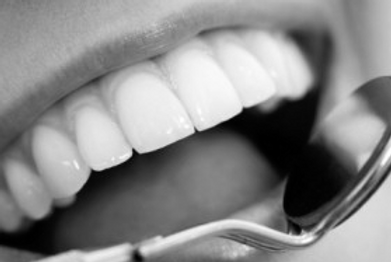STEPHEN A. HOROWITZ, D.D.S.
PERIODONTICS AND DENTAL IMPLANTS
PERIODONTAL DISEASE
What is periodontal disease?
Periodontitis is an inflammatory disease caused by a bacterial infection. The inflamation occurs in the supporting tissues of the teeth including the gums, ligament, and bone. Periodontal disease is the major cause of tooth loss in adults. It can affect one tooth or many teeth in the mouth. It begins when bacteria in plaque ( the sticky, colorless film that constantly forms on the teeth) spreads under the gumline and multiplies. The bacteria and the toxins they produce cause an inflammatory response in the body. It is the body's own inflammatory response which causes the destruction of the gum tissue and bone that surround the teeth. The pockets are able to trap more bacteria and the infection progresses.
Symptoms of Gingivitis, the first stage, may include:
• Tender & painful gums
• Swelling & red gums
• Bleeding gums, especially after brushing
Symptoms of Periodontitis, the second stage, may include:
• Bad breath & foul taste
• Bleeding gums intensified
• Difficulty eating
• Pus from the gums
• Teeth becoming loose
• Teeth falling out
• Abscessed gums (collection of infected fluid)
It is important to note that chronic periodontal disease is often PAINLESS. This lack of discomfort associated with the disease makes people less likely to seek treatment and accept their doctor's recommendations. Periodontitis causes the loss of attachment of the gums and ligament surrounding a tooth. The disease in the chronic form is slowly progressive and destroys the supporting bone around the teeth as well. While the destruction caused by periodontal disease is often slowly progressing, in some patients it can be quite aggressive with rapid destruction of the gum, ligament, and jaw bone. Retaining your teeth is directly dependent on proper periodontal care and maintenance. Healthy gums enhance the appearance of your teeth, like a frame around a beautiful painting. When your gums become unhealthy, they can either recede or become swollen and red. In later stages, the supporting bone is destroyed and your teeth will shift, loosen, or fall out. These changes not only affect your ability to chew and speak; they also destroy your smile.
In recent years, research has suggested that periodontal disease and oral infections may link to systemic diseases. Researchers have been studying the interactions of periodontal disease and preterm/loco birth weight babies.

